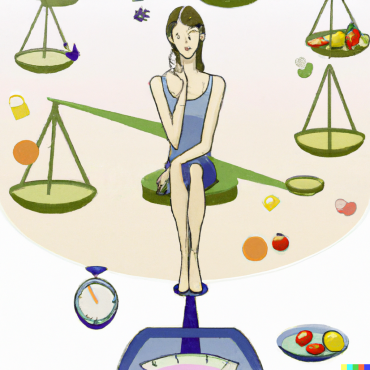Come winters, and the temperatures drop. The only thing one wishes to do is sleep more snuggled tight in the blankets and eat eat eat! Oh… the delicious Gajjar ka halwa, hot cup of coffee, garam garam bhajiyaas and more….
Why is it that in summer we can live off salads and light meals but in winter we can’t get our hand on enough food?
Scientifically during winter we have less daylight. Your pineal gland responds to lack of light by producing melatonin, the sleep hormone, which makes you feel sleepy and ready to rest. When you feel sleepy you lack energy and motivation and therefore your activity levels may decrease. You may feel the cold more and because the act of metabolizing food generates heat, your body will naturally crave food to keep you warm. The higher level of melatonin also increases appetite.
Winters affect your mood and you find yourself consuming simple carbohydrates to feel better. These foods produce the hormone serotonin which makes you feel happy but not for long as these foods cause your blood sugar to spike rapidly and then drop quickly, much like a roller-coaster ride.
So, how can we avoid over-eating during winters?
Continue to exercise: Exercise stimulates endorphin production, which helps relieve stress and makes you feel good for many hours after. You will have more energy throughout the day and your metabolism will stay elevated helping you to maintain your weight.
Consume Omega 3: Omega 3 is vital for brain health and development, hence obtaining Omega 3 through your diet should be a priority for long-term health. Omega 3 rich foods include oily fish (salmon, tuna, mackerel, and sardines), chia seeds, hemp seed oil, flax seeds and walnuts. There are also small amounts in dark green leafy vegetables.
Avoid refined and processed foods: Processed foods like white breads, refined grains, and sugar not only lack the nutrients your body craves, but they zap your energy levels and can affect your mood. Consuming more complex carbohydrates such as whole wheat breads, brown rice, vegetables and fruit will provide your body and mind with nutrients and stabilize your blood sugar and your energy levels.
Keep up your water intake: Our bodies are 60 – 70% water and we use water every time we move, eat, breath and go to the toilet. Maintaining hydration is vital for the proper functioning of the body and is important all year round. If you don’t consume enough fluid you will become dehydrated which amongst other things can cause fatigue. If you aren’t a huge water drinker and feel like drinking something warm during the colder months you could try green tea, herbal infusions, hot water or even soups.
It’s not a big challenge and one must indulge occasionally but by staying active and watching your food intake over a regular time frame. And with this, you can avoid the extra kilos that we tend to put on over the chilly winter months!
Happy Winters! J
Image Courtesy: newsnextbd.com

























































Comments